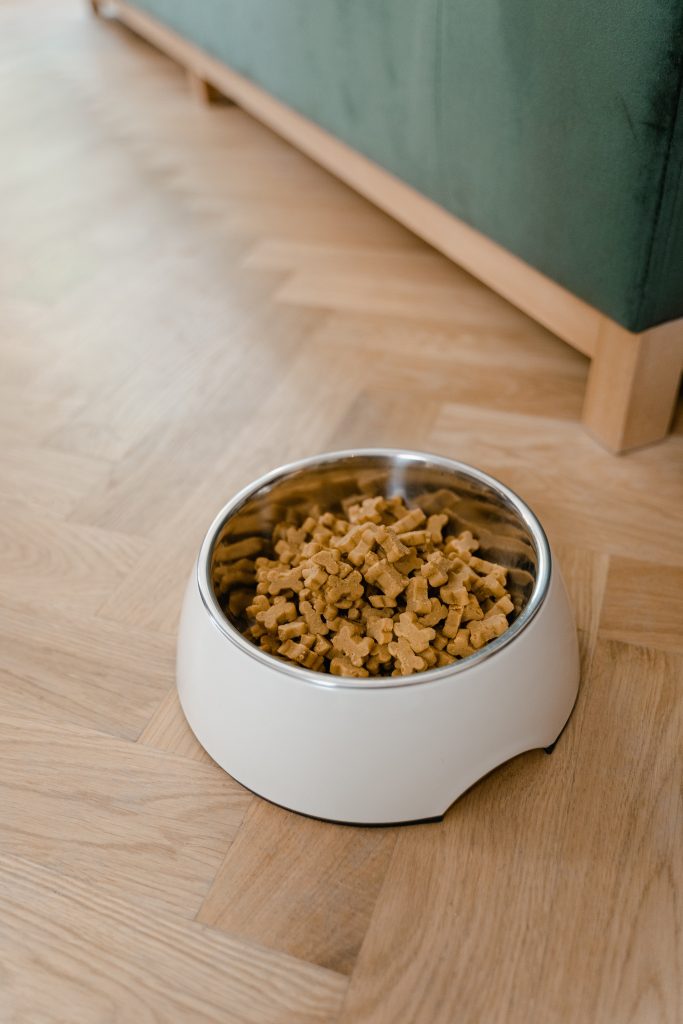What is Pet Food?
Pet food is a specially formulated food designed for consumption by pets, such as dogs, cats, birds, and other animals. It is an essential aspect of pet care, as it provides pets with the necessary nutrients and energy to maintain their health and wellbeing.
Pet food is available in different forms, including dry kibble, wet canned food, and semi-moist pouches. According to a recent survey by the American Pet Products Association, dry kibble is the most popular type of pet food, followed by wet canned food and semi-moist pouches. Each type of food has its own advantages and disadvantages, and it is essential to choose the right type of food based on your pet’s age, breed, size, and health condition.
Factors to Consider When Choosing Pet Food
When choosing pet food, there are several factors that you need to consider to ensure that your pet receives the right nutrition. These factors include:
Age and Breed
Different pets have different nutritional requirements depending on their age, breed, size, and activity level. For example, puppies and kittens require more protein and fat than adult dogs and cats, while senior pets require fewer calories and more fiber. According to a study by the National Research Council, puppies and kittens require up to twice as much energy per unit of body weight as adult dogs and cats.
Health Condition
If your pet has a medical condition, such as allergies, digestive problems, or kidney disease, it is important to choose pet food that is specifically formulated to meet their nutritional needs. For example, some pet foods are designed to reduce food allergies, while others are formulated to support kidney function. According to a survey by PetMD, about 10% of dogs and cats have food allergies, and about 30% of cats over the age of 10 have some degree of kidney disease.
Ingredients
The quality and source of ingredients used in pet food can have a significant impact on your pet’s health. It is important to choose pet food that contains high-quality, natural ingredients and avoid pet food that contains artificial preservatives, colors, and flavors. According to a study by the University of Guelph, pet owners are more likely to choose pet food based on the ingredients listed on the label rather than the brand name.
Price
Pet food can be expensive, especially if you have multiple pets. However, it is important to choose pet food that is affordable without compromising on quality. Look for pet food that provides good value for money and meets your pet’s nutritional needs. According to a survey by Packaged Facts, about 40% of pet owners are willing to pay more for pet food that is made with high-quality ingredients.
Types of Pet Food
There are three main types of pet food: dry kibble, wet canned food, and semi-moist pouches. Each type of food has its own advantages and disadvantages, and it is important to choose the right type of food based on your pet’s needs.
Dry Kibble
Dry kibble is the most common type of pet food and is available in different flavors and formulas. It is convenient to store and can be left out for your pet to eat throughout the day. Dry kibble is also relatively affordable and easy to find in most pet stores. According to a survey by the American Pet Products Association, about 50% of dog owners and 40% of cat owners prefer dry kibble over other types of pet food.
However, dry kibble has a low moisture content, which can be problematic for pets that do not drink enough water. Additionally, some dry kibble brands contain fill
…ers, preservatives, and artificial flavors, which can be unhealthy for your pet in the long run. When choosing dry kibble, look for brands that use high-quality ingredients, such as real meat, fruits, and vegetables, and avoid brands that use fillers and artificial additives.
Wet Canned Food
Wet canned food is another popular type of pet food that has a high moisture content, which can help keep your pet hydrated. It is available in a variety of flavors and textures and is easy to digest. Wet canned food is also ideal for pets with dental issues or those that have trouble chewing dry kibble.
However, wet canned food can be more expensive than dry kibble, and it has a shorter shelf life once opened. It is also important to choose high-quality brands that do not use fillers or artificial additives.
Semi-Moist Pouches
Semi-moist pouches are a relatively new type of pet food that are similar in texture to wet canned food but have a longer shelf life. They are convenient to store and serve and are ideal for pet owners who want to provide their pets with a balanced diet without the hassle of preparing fresh food.
However, semi-moist pouches are generally more expensive than dry kibble and may contain high levels of sugar and salt. It is important to choose brands that use natural ingredients and avoid those that use fillers and artificial additives.
Frequently Asked Questions About Pet Food
Q: How much pet food should I feed my pet?
A: The amount of pet food you should feed your pet depends on their age, breed, size, and activity level. It is important to follow the feeding guidelines on the pet food packaging and adjust the amount as needed based on your pet’s individual needs. Overfeeding can lead to obesity and other health issues, while underfeeding can result in malnutrition.
Q: Can I feed my pet human food instead of pet food?
A: While it may be tempting to feed your pet human food, it is generally not recommended. Human food may contain ingredients that are harmful to pets, such as onions, garlic, and chocolate. Additionally, human food may not provide the balanced nutrition that pets need to stay healthy. It is best to stick to high-quality pet food that is specifically formulated for your pet’s nutritional needs.
Q: How do I know if my pet is allergic to their food?
A: Signs of food allergies in pets include itching, skin rashes, gastrointestinal upset, and ear infections. If you suspect that your pet is allergic to their food, it is important to consult with your veterinarian. Your vet may recommend an elimination diet to identify the specific ingredient causing the allergy or may prescribe a hypoallergenic pet food.
Q: What are some common ingredients to avoid in pet food?
A: There are several common ingredients that pet owners should avoid when choosing pet food. These include:
- Fillers, such as corn and wheat, which provide little nutritional value and can be difficult for pets to digest.
- Artificial additives, such as colors, flavors, and preservatives, which can be unhealthy for pets and may cause allergic reactions.
- Meat by-products, which are low-quality meat sources that may contain parts of the animal that are not fit for human consumption.
- Grains, which can be difficult for some pets to digest and may cause allergic reactions.
Conclusion
Choosing the right pet food is essential for keeping your pet healthy and happy. Whether you prefer dry kibble, wet canned food, or semi-moist pouches, it is important to choose high-quality brands that use natural ingredients and avoid fillers and artificial additives. By following the feeding guidelines on the pet food packaging and monitoring your pet’s individual needs, you can help ensure that they receive the balanced nutrition they need to thrive.

